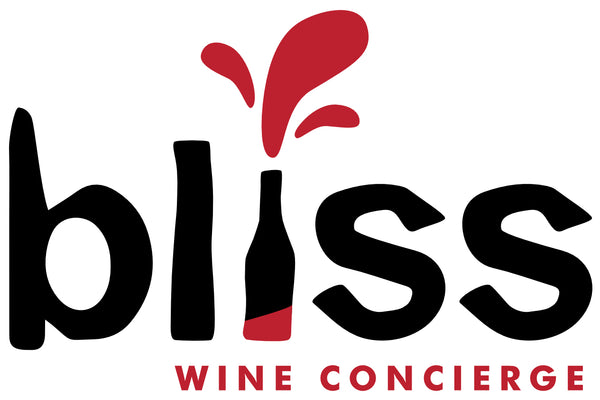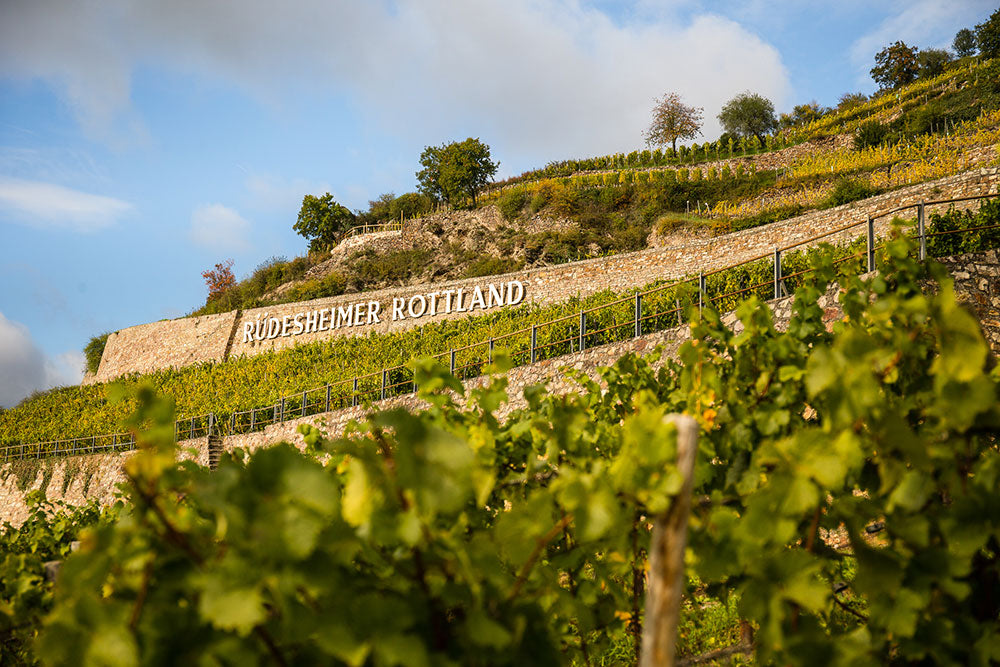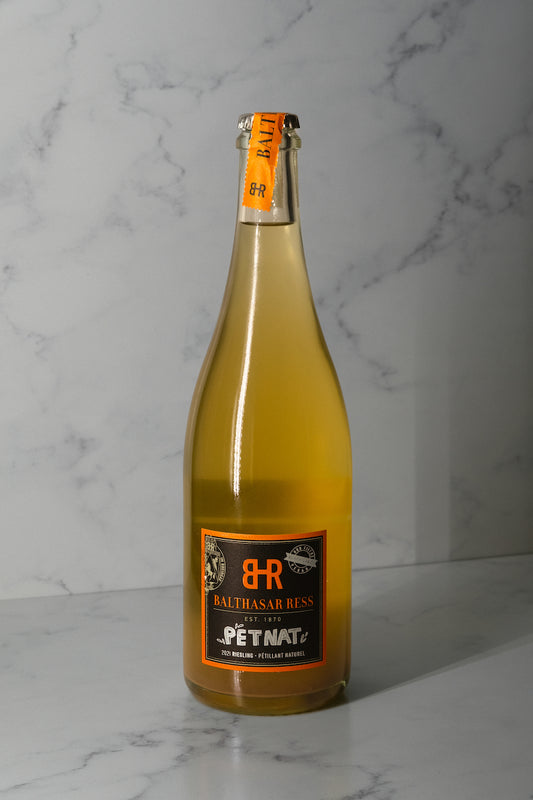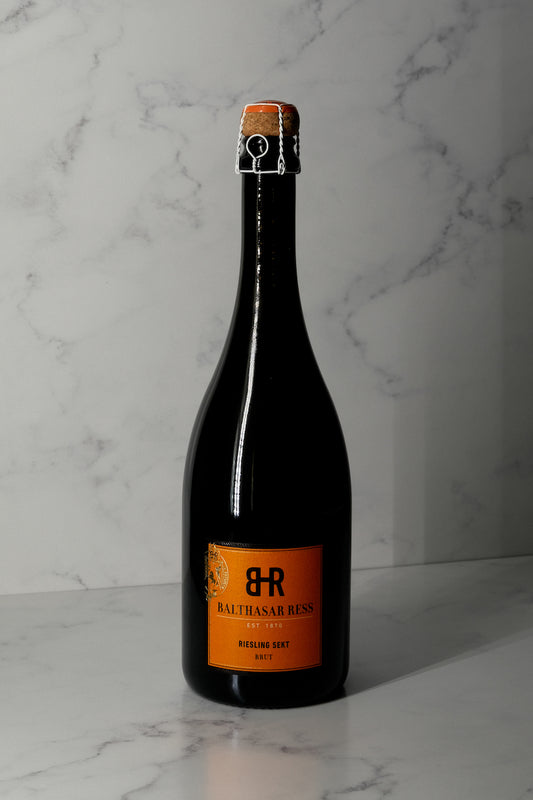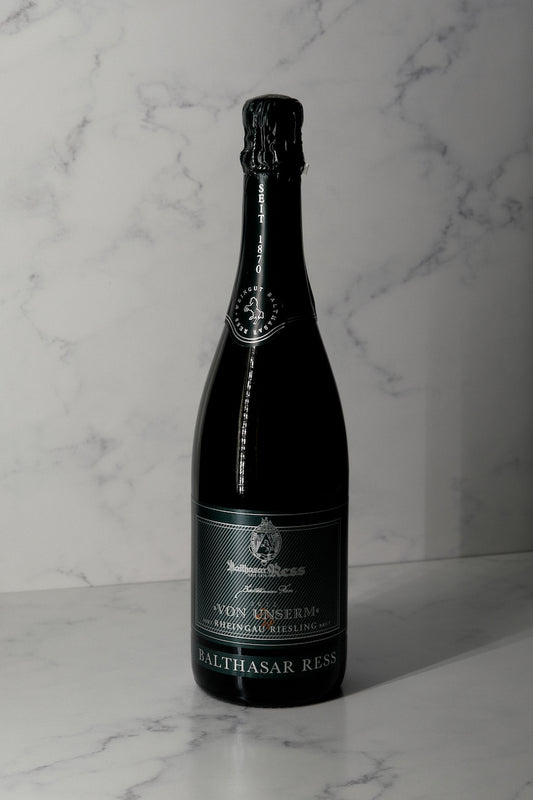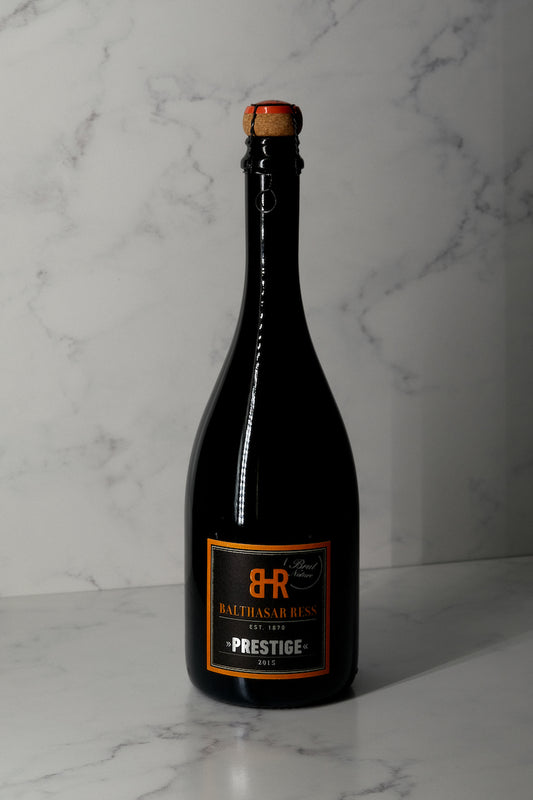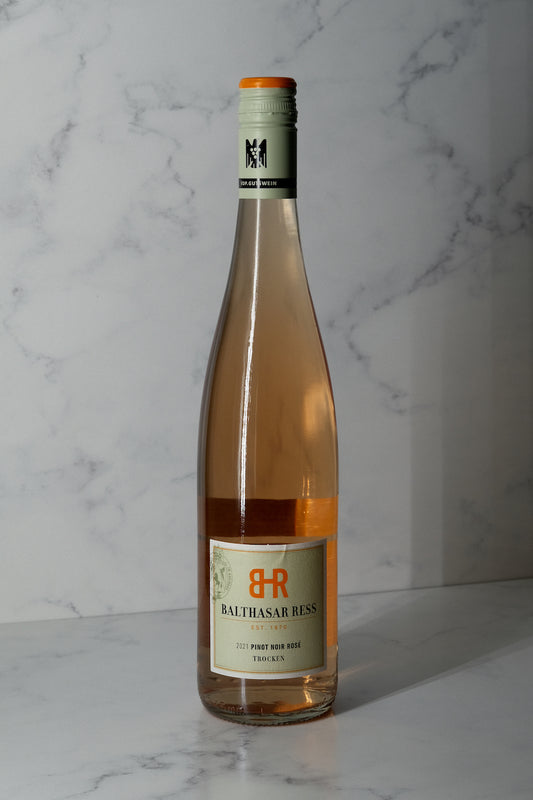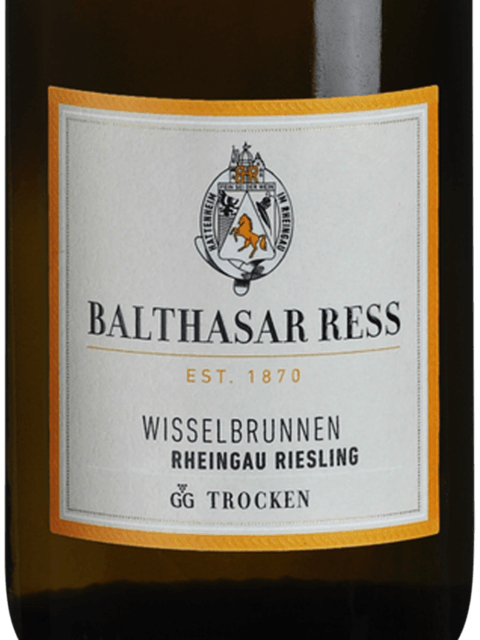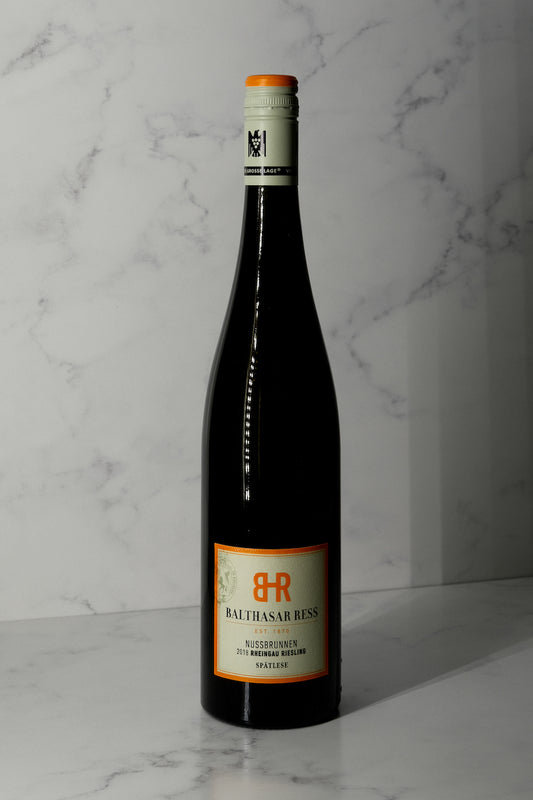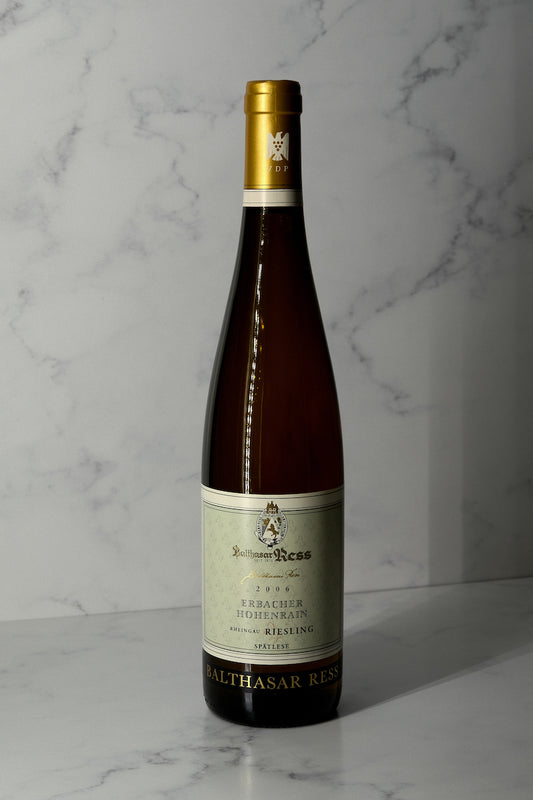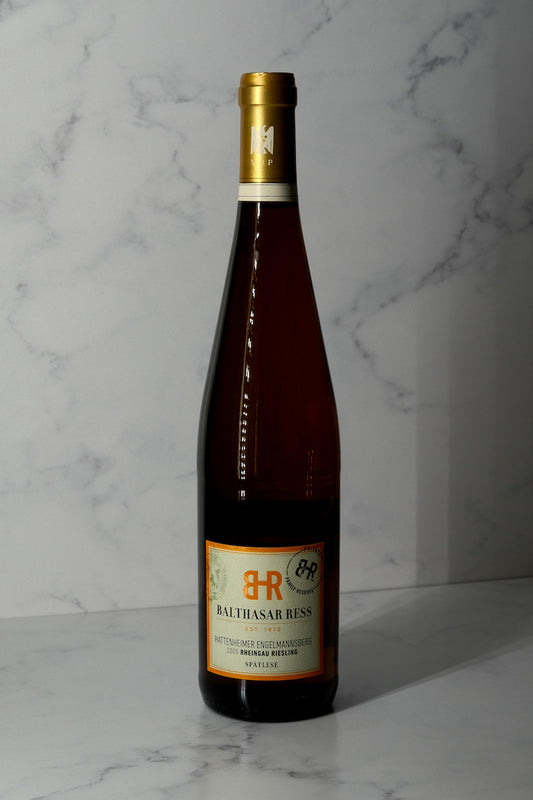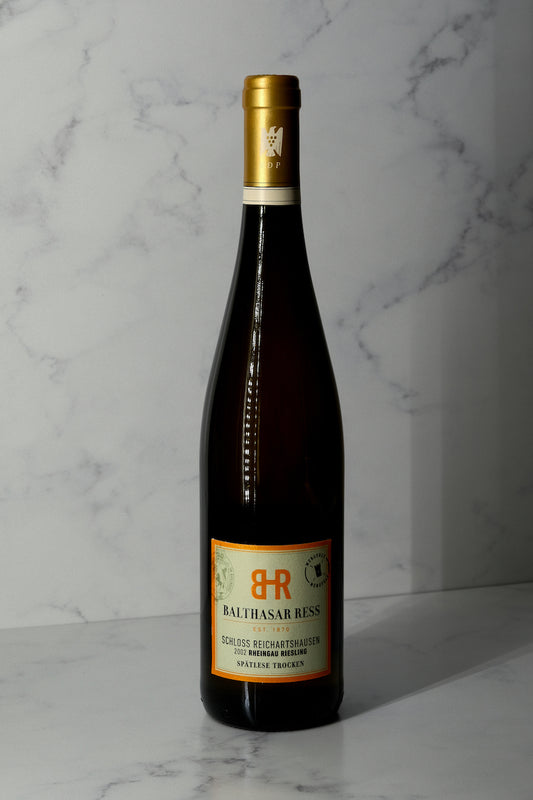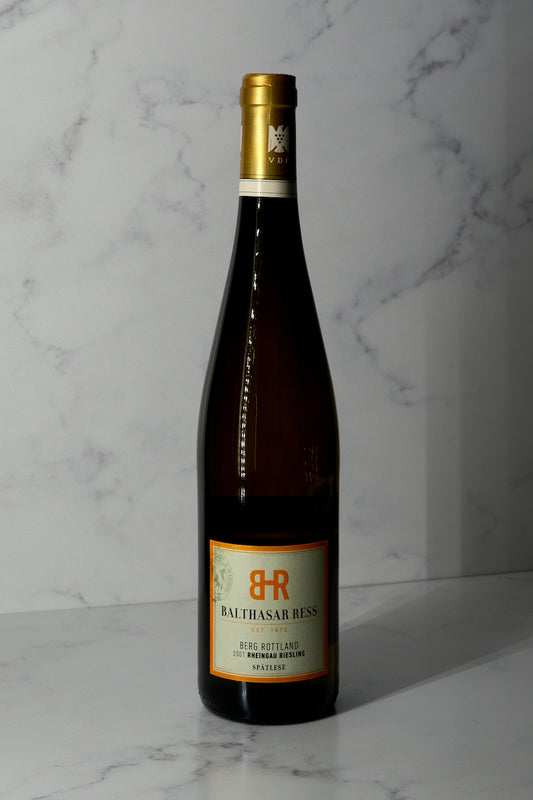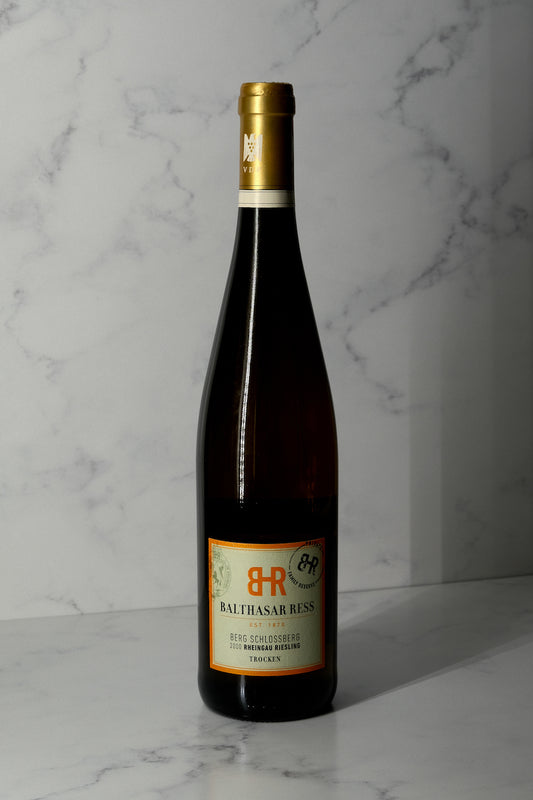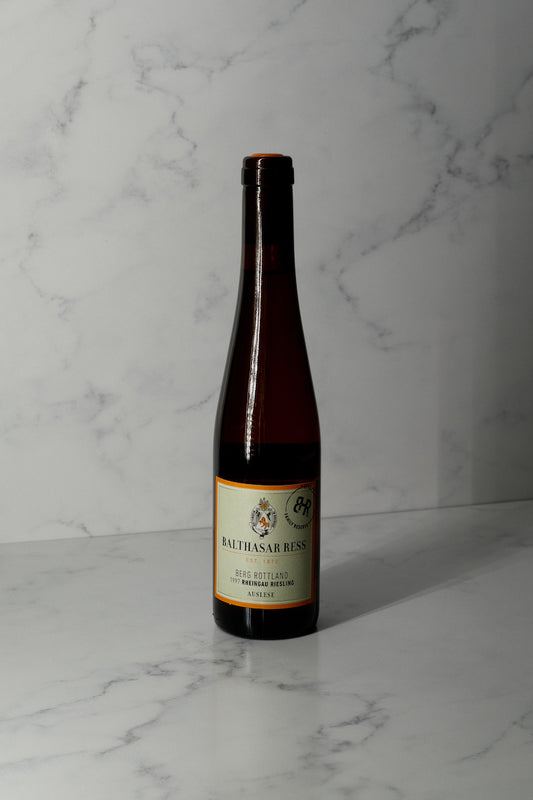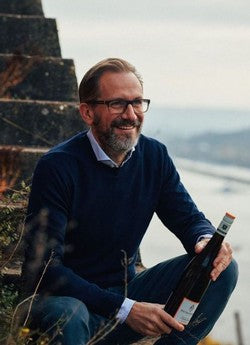
Winemaker: Christian Ress
Collapsible content
Winery Stats
Winery Story
Philosophy
Something Random
-
Balthasar-Ress- Riesling Pet Nat Trocken Perlwein 2021
Vendor:Bliss Wine ConciergeRegular price $35.00 USDRegular priceUnit price per -
Balthasar-Ress- Riesling Sekt Brut MV
Vendor:Bliss Wine ConciergeRegular price $40.00 USDRegular priceUnit price per -
Balthasar-Ress- Von Unserm Riesling Sekt Brut 2012
Vendor:Bliss Wine ConciergeRegular price $50.00 USDRegular priceUnit price per -
Balthasar-Ress- Rüdesheim Berg Riesling Sekt Brut Nature 2015
Vendor:Bliss Wine ConciergeRegular price $90.00 USDRegular priceUnit price per -
Balthasar-Ress- Pinot Noir Rosé Trocken 2021
Vendor:Bliss Wine ConciergeRegular price $20.00 USDRegular priceUnit price per -
Balthasar-Ress- Hattenheim Wisselbrunnen GG (1.5L) 2016
Vendor:Bliss Wine ConciergeRegular price $125.00 USDRegular priceUnit price per -
Balthasar-Ress- Hattenheim Nussbrunnen Spätlese Riesling 2018
Vendor:Bliss Wine ConciergeRegular price $55.00 USDRegular priceUnit price per -
Balthasar-Ress- Erbach Hohenrain Spätlese Riesling 2006
Vendor:Bliss Wine ConciergeRegular price $75.00 USDRegular priceUnit price per -
Balthasar-Ress- Hattenheimer Engelmansberg Spätlese Riesling 2005
Vendor:Bliss Wine ConciergeRegular price $75.00 USDRegular priceUnit price per -
Balthasar-Ress- Schloss Reichartshausen Spätlese Trocken Riesling 2002
Vendor:Bliss Wine ConciergeRegular price $75.00 USDRegular priceUnit price per -
Balthasar-Ress- Rudesheim Berg Rottland Spätlese Riesling 2001
Vendor:Bliss Wine ConciergeRegular price $85.00 USDRegular priceUnit price per -
Balthasar-Ress- Rudesheim Berg Schlossberg Auslese Trocken Riesling 2000
Vendor:Bliss Wine ConciergeRegular price $110.00 USDRegular priceUnit price per -
Balthasar-Ress- Rüdesheim Berg Rottland Auslese (375mL) 1997
Vendor:Bliss Wine ConciergeRegular price $65.00 USDRegular priceUnit price per
What's In the Box- December 2023
Master Sommelier Andrey Ivanov explores the wines of Balthasar-Ress just in time for the holidays and the new year!
Joined by our friend Alisha Blackwell-Calvert, these two friends talk about how to open sparkling wines, the wonderful world of German bubbles, and what kind of sweet delights to enjoy with them!
These wines were released to the Bliss Wine Imports Club for December 2023. Be sure to follow the link to join the club and see what is featured this month!
Wines Tasted:
- MV Riesling Pet-Nat
- MV Riesling Sekt
- MV Spätburgunder Sekt Rosé
- 2021 Pinot Noir Rosé Trocken
